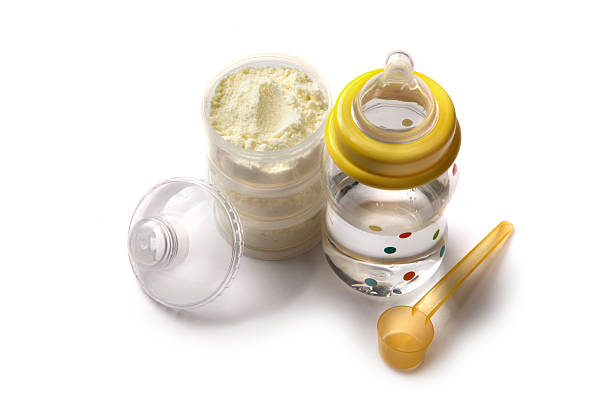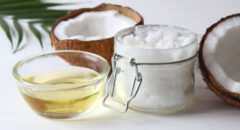
Several powdered baby formula products have been voluntarily recalled by Abbott Inc., following reports of four infants developing bacterial infections after consuming the products, the U.S. Food and Drug Administration said Thursday.
"As this is a product used as the sole source of nutrition for many of our nation's newborns and infants, the FDA is deeply concerned about these reports of bacterial infections," Frank Yiannas, FDA Deputy Commissioner for Food Policy and Response, said in an agency news release. "We want to reassure the public that we're working diligently with our partners to investigate complaints related to these products... while we work to resolve this safety concern as quickly as possible."
RELATED: 4 Safety Tips For Your Newborn
Which products should you steer clear of?
Consumers should not use Similac, Alimentum, or EleCare powdered infant formulas if: the first two digits of the code are 22 through 37; the code on the container contains K8, SH or Z2; and the expiration date is 4-1-2022 (APR 2022) or later, the FDA warns.
The agency is investigating three Cronobacter sakazakii infections and one Salmonella Newport infection among four infants in three states — Minnesota, Ohio and Texas. All of the infants were hospitalized and Cronobacter may have contributed to a death in one case.
The recalled powdered baby formula products were produced at Abbott Nutrition's facility in Sturgis, Mich., and sold across the United States and likely exported to other countries, according to the FDA.
The agency says it has launched an inspection at the facility. To date, several environmental samples taken at the plant have tested positive for Cronobacter.
A review of Abbott's internal records also reveals environmental contamination with Cronobacter and the destruction of product due to the presence of Cronobacter, according to the FDA.
The FDA is conducting the investigation with the U.S. Centers for Disease Control and Prevention and state and local agencies.
What is Cronobacter?
Cronobacter bacteria can cause severe, life-threatening infections (sepsis) or meningitis (an inflammation of the membranes that protect the brain and spine).
Symptoms of sepsis and meningitis may include poor feeding, irritability, temperature changes, jaundice (yellow skin and whites of the eyes), grunting breaths and abnormal movements, the FDA notes.
Cronobacter infection may also cause bowel damage and may spread through the blood to other parts of the body.
How to protect your child
This news is understandably concerning for parents to hear, however, Abbott insists that parents generally shouldn't worry. Abbott conducts routine testing for these bacteria no distributed product has tested positive for the presence of either bacteria, according to CNET.
If you have an infant who has consumed these products and you are concerned about their health, contact your child's health care provider. If your child is experiencing any of these symptoms, notify your child's health care provider and seek medical care for your child immediately, the FDA advised.
Salmonella can cause salmonellosis. Most people with salmonellosis develop diarrhea, fever and abdominal cramps. More severe cases of salmonellosis may include a high fever, aches, headaches, lethargy, a rash, blood in the urine or stool, and in some cases, may cause death, the agency said.
RELATED: 10 Healthy Homemade Baby Food Recipes
How to safely prepare formula
If you are using powdered baby formula, remember these safety guidelines provided by the CDC:
- Wash your hands well before preparing bottles or feeding your baby. Clean and sanitize the workspace where you will be preparing the infant formula.
- Bottles need to be clean and sanitized. To learn more about how to properly clean your baby’s bottles and other feeding supplies, visit the CDC webpage How to Clean, Sanitize, and Store Infant Feeding Items.
- Baby’s milk or infant formula does not need to be warmed before feeding, but some people like to warm their baby’s bottle.
- If you do decide to warm the bottle, never use a microwave. Microwaves heat milk and food unevenly, resulting in “hot spots” that can burn your baby’s mouth and throat.
- To warm a bottle: Place the bottle under running warm water, taking care to keep the water from getting into the bottle or on the nipple. Put a couple of drops of infant formula on the back of your hand to see if it is too hot.
- Use water from a safe source to mix your infant formula. If you are not sure if your tap water is safe to use for preparing infant formula, contact your local health department.
- Use the amount of water listed on the instructions of the infant formula container. Always measure the water first and then add the powder.
- Too much water may not meet the nutritional needs of your baby.
- Too little water may cause your baby’s kidneys and digestive system to work too hard and may cause your baby to become dehydrated.
- If your baby is very young (younger than 3 months old), was born prematurely, or has a weakened immune system, you may want to take extra precautions in preparing your infant’s formula to protect against Cronobacter (see box).








